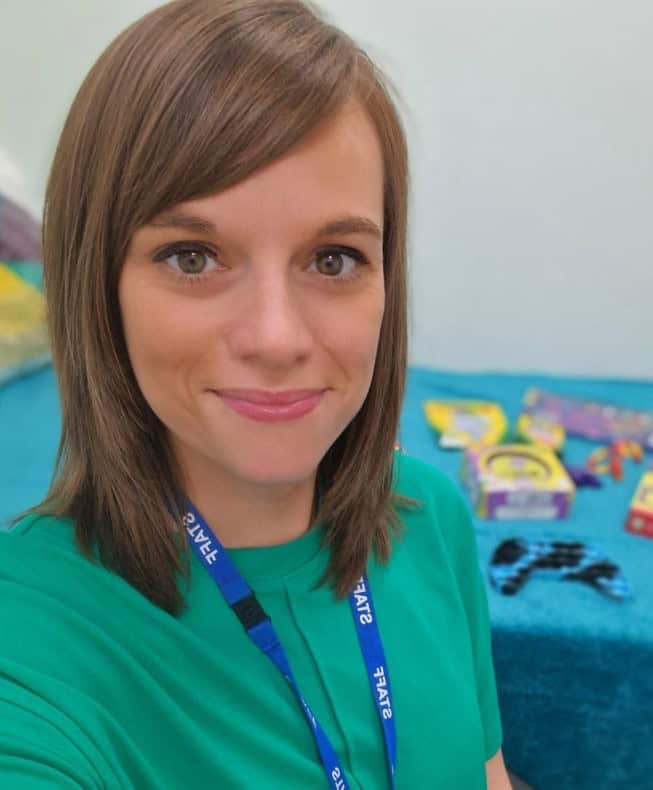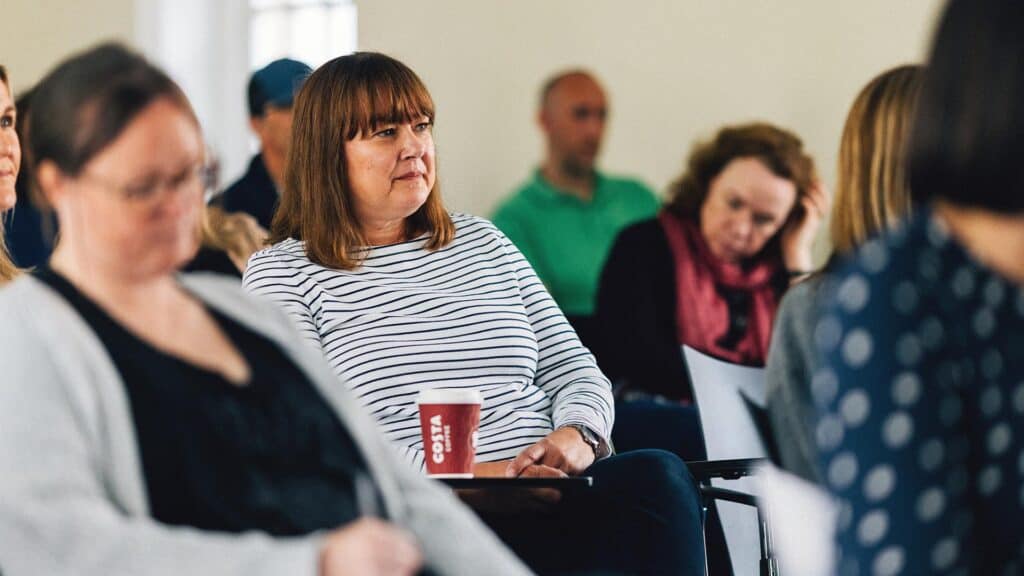1st
in Counselling for teaching on my course
National Student Survey 2024
4th
in the UK for overall average positivity for Counselling
National Student Survey 2024
100%
positivity that the course has developed your knowledge for the future
National Student Survey 2024
Join us at one of our Open Days!
Saturday 11 October
Sunday 26 October
Saturday 22 November
Saturday 11 October
Sunday 26 October
Saturday 22 November
Our next Open Day is in:
Overview
The theoretical framework of the course is based on a humanistic philosophy which aims to create a holistic experience for students.
Students’ competence and understanding in the use of counselling skills for working with Children and Young People is developed through their active participation and tutor-led skills demonstrations.
The eight subject areas of competency in the Introduction to Counselling Young People module meet BACP’s requirements and are mapped to the BACP learning outcomes. These areas of competency and outcomes are required for students wishing to undertake practice hours with young people as part of their core adult training course and make up the curriculum.
The subject areas are:
- Ethical and professional practice
- Child protection and safeguarding
- Child and adolescent development and transitions
- Communication with young people
- Beginnings and endings with young people
- Risk assessments
- Mental health and young people
- Working within the context of the counselling setting.
Learning Outcomes
The course module content and curriculum are related to the learning outcomes as set out by BACP and mapped across eight subject areas.
At the end of the BACP Stage 1 (Introduction) successful students will be able to:
- Demonstrate knowledge of ethical and professional principles and guidelines that underpin the content of the Introduction to Counselling Young People (C1).
- Evidence the ability to identify and critically appraise ethical conflicts in relation to confidentiality, information sharing, capacity and consent (C1&2).
- Demonstrate an understanding of how to identify and respond appropriately to child protection and safeguarding concerns (C3&5).
- Demonstrate an understanding of child and adolescent development and transitions and the impact on the client, their presentation in counselling and any implications for therapeutic work (C3&8).
- Evidence knowledge of the different ways young people communicate and express themselves depending on their age and developmental stage (C3,4&5).
- Demonstrate the skills required to communicate with and engage clients of different ages and developmental stages (C3,4&6).
- Demonstrate the skills required to be able to contract, establish and agree therapeutic focus/goals for counselling with young people, and how to bring the work to a close (C5,7&6).
- Evidence the ability to identify and assess potential risk, and know how to act if a young person is at risk (C1,2&6).
- Demonstrate an understanding of how mental health difficulties can emerge and present in young people (C7&8).
Specific transferable skills
- Can practise interpersonal skills with a greater knowledge of the concepts and principles of counselling skills with young people aged 11-18 years.
- This will incorporate communication in one-to-one and group situations, both personal and professional.
- Will be able to communicate accurately and reliably with structured and coherent arguments for their rationale.
- Will be able to utilise information and communication technology skills.
- Will have insight and understanding of personal values and their inner adolescent.
- Can communicate effectively incorporating humanistic philosophy and core conditions enhancing one-to-one and group situations.
- Can demonstrate awareness of ethical issues in practice with enhanced insight to personal beliefs and values.
Course Dates
The course dates for 2025 are as follows:
- Monday 23rd June 2025
- Tuesday 24th June 2025
- Thursday 26th June 2025
- Monday 30th June 2025
- Tuesday 1st July 2025
How You Will Be Taught
Taught sessions over five days include some informal written assessments which will be underpinned by theories of psychological learning, child development and reflexivity (e.g. Gibbs Reflective Cycle, 1988).
Some sessions include reflective and creative activities. A minimum of two online modules through Mind Ed need to be completed, as well as the opportunity to practice specific communication skills with peers on the course.
The final assessment is a portfolio of the five days session and reflective accounts.
Facilities
Use University resources, equipment and study spaces
Learning Resource Centre
The Learning Resource Centre (LRC) contains the library, a café, IT/teaching rooms and the Support and Information Zone (SIZ).
Library
Our campus library holds more than 200,000 books and over 500,000 eBooks.
Careers
Where you could go after your studies
You can apply for progression onto the BA (Hons) Humanistic Counselling once you complete this Certificate.
Students with additional qualifications/credit can progress from Certificate level to degree level in five years. The BA (Hons) in Humanistic Counselling is also an excellent development for students already holding a Diploma in Counselling.

Bud Hagon

Cathy Burnard
Student
Entry Requirements
- Trainee counsellors on adult-focused, counselling/psychotherapy core training courses who wish to undertake some of their practice hours in a placement working with young people.
- Counsellors already qualified to work with adults who want to extend their scope of practice to counselling young people and work towards a formal award in Counselling Young People.
Typical entry requirements are:
- Minimum of diploma level 4 [Regulated Qualifications Framework (RQF) England, Wales and Northern Ireland] and level 7 [The Scottish Credit and Qualifications Framework (SCQF) Scotland] counselling/psychotherapy qualification or equivalent, to include a minimum of 100 hours supervised counselling/psychotherapy practice in line with recognised practitioner training.
OR:
- Currently studying for a counselling/ psychotherapy qualification (course requirements as above), and has completed a substantial (20 hours) number of counselling practice hours with individual adults and has been assessed as suitable for working with young people.
- BACP Student or BACP Registered Member, or equivalent member of a professional body who adheres to an ethical framework/code of practice.
Course Costs
Course Fees 2025
UK fee
For further details about fees, please see our Tuition Fee page.
Apply
To apply, please express your interest to counsellingadmin@chi.ac.uk.



